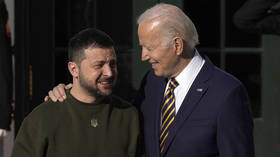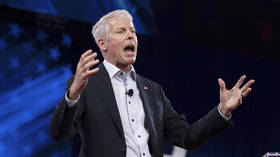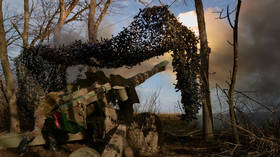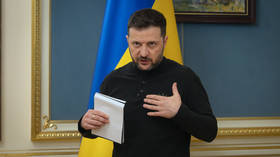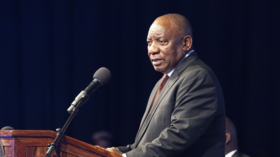US promises billions to fund Afghan military through 2017
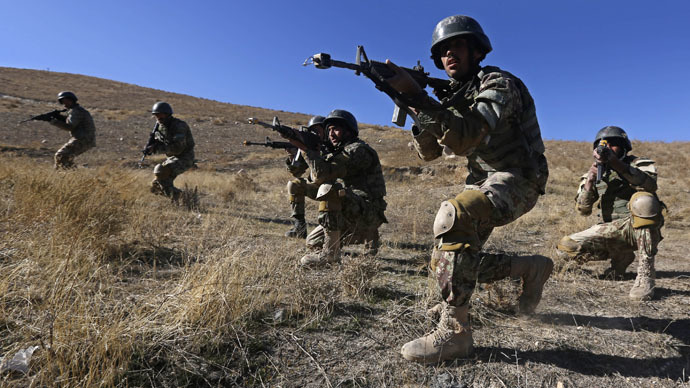
Officials have confirmed the US will continue to spend about $4 billion a year to fund Afghanistan’s military for the next two fiscal years. It is a sign of support for the government in Kabul, which Washington views as more cooperative than in the past.
The pledge means continued US funding for Afghan security forces at the peak level of 352,000 troops through the end of fiscal year 2017, a financial commitment costing about $4 billion a year, news agencies quoted US officials following the day of talks with Afghan leadership at Camp David.
Afghan President Ashraf Ghani Ahmadzai, in office since September last year, is currently visiting the US. He is expected to meet with President Barack Obama on Tuesday.
U.S. to fund Afghan forces at peak level through 2017: officials http://t.co/DF68JQO3xT
— Reuters World (@ReutersWorld) March 23, 2015
In his remarks at the Pentagon on Monday, Ghani thanked the US troops for their sacrifices in his country, hoping that someday American veterans will visit Afghanistan as tourists so that Afghans “will be able to say thank you to each one of you personally, shake your hands, and invite you to our homes.”
Nearly one million US troops have been deployed to Afghanistan since 9/11. Over 20,000 were wounded and 2,215 killed during almost 14 years of war following the terror attacks in New York and Washington.
“We do not now ask what the United States can do for us,” Ghani said at the Pentagon, invoking the famous speech by John F. Kennedy. “We want to say what Afghanistan will do for itself and for the world," Ghani said. "And that means we are going to put our house in order.”
READ MORE: Afghan leadership duo visit US to secure troops, aid
Ghani did, however, ask Washington to continue funding the Afghan military and slow down the withdrawal of US troops, which the Obama administration intended to complete by 2017. There are currently nearly 10,000 US troops in Afghanistan, almost half of which are scheduled to withdraw by the end of the year. But Ghani has pressed for US troops to stay in the country longer, citing fears of Islamic State advances and ongoing battles against the resurgent Taliban.
At the peak of US involvement in Afghanistan, there were 130,000 US and NATO troops in the country. Combat operations officially ended last year, leaving a shrinking US force with a mission to train Afghanistan’s 350,000 soldiers and police.
“It's clear that the 352,000 surge force that has been in place since at least 2012 is the appropriate level to maintain for now,” a senior Obama administration official told reporters on condition of anonymity. “We're going to work our way to a more sustainable structure over time.”
Due to heavy attrition, the actual number of Afghan security forces is closer to 330,000 at the moment, the official acknowledged.
The cost of the commitment was $4.1 billion for fiscal year 2015, projected to fall to $3.8 billion for fiscal year 2016.
READ MORE:Afghanistan: No end for Obama’s endgame
The Afghan delegation spent all day Monday in meetings with senior US officials, including Defense Secretary Ash Carter and Secretary of State John Kerry. In addition to military funding, the talks touched on specific reforms Afghanistan would have to complete before receiving up to $800 million in US aid.
Washington is eager to show that the new government in Kabul is reliable and competent enough to solve its own problems, while being appreciative of US help. Ghani’s predecessor, Hamid Karzai, came to power following the US invasion in 2001, but his relationship with Washington soured over the years. Karzai had refused to sign a treaty with the US and NATO before leaving office last September. Ghani signed the pact within days of taking office.
Ghani is a graduate of the American University in Beirut and has a doctorate from New York’s Columbia University. From 1991 to 2001 he worked at the World Bank. He is married to a Lebanese-American he met in Beirut during his studies. Their children have American citizenship.





